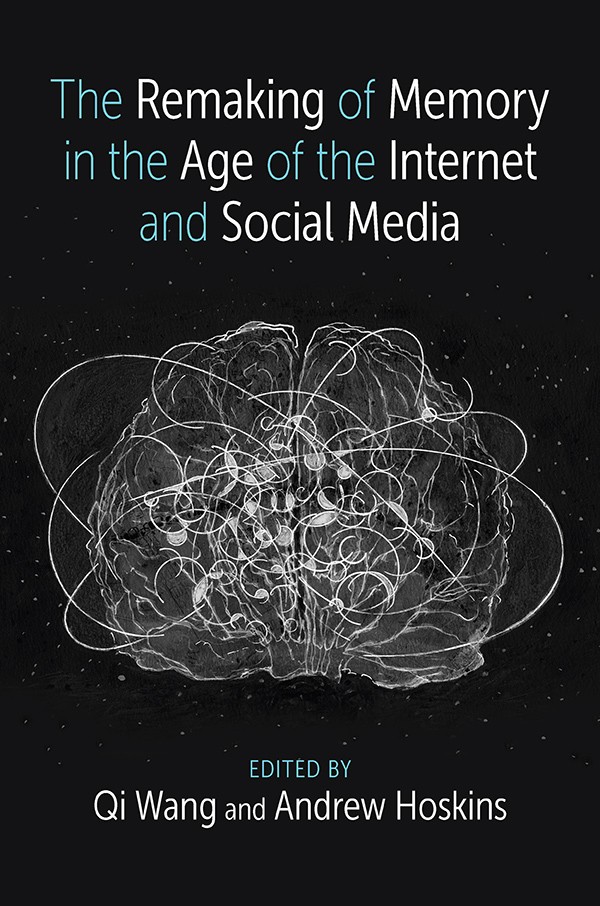Have you ever used an app or online service to accomplish a task or help you remember to do something? Have you ever shared something on a social media platform? In this digital era, we have become dependent on apps, services and platforms for everyday tasks, staying updated on news or sharing experiences.
Qi Wang, the Joan K. and Irwin M. Jacobs Professor of Human Development in the College of Human Ecology wanted to create a deeper understanding of how our digital culture - specifically internet and social media use - affects our memory. Wang teamed up with Andrew Hoskins from the University of Edinburgh on a new book, "The Remaking of Memory in the Age of Internet and Social Media."
Their book, published in November 2024 by Oxford University Press, features studies from more than 30 of the world's leading researchers probing key issues on how our digital culture affects our memory, including recalling personal memories of events and information, and collective memories about the community, society and nation. The researchers are from various disciplines which, Wang said, is a groundbreaking integration of research on a timely issue that can help shape future research.
The Chronicle talked with Wang about the book:
Question: What prompted you and your co-editor to put together this book?
Answer: In 2022, I edited a special issue in the journal Memory that included a collection of articles on the impact of social media and the internet on memory. In the process, I recognized that despite the omnipresence of social media, which has profoundly changed how we receive, retain and share information, there is not much cognitive research regarding this topic.
What's more, the research on this done by cognitive researchers and psychologists like me is largely disconnected from the research in other fields like communication, sociology, cultural studies, media studies and history, which has identified and investigated critical issues related to memory in the digital age.
Even though cross-disciplinary collaboration can be challenging, we believed that only when researchers from diverse fields work together can we truly understand the complex individual, social, historical and cultural processes involved in how social media and the Internet affect memory.
Q: From your own research, how does the impact of our digital culture - specifically our use of the internet and social media - shape our memory?
A: The internet and social media have transformed how we remember and forget. In another book I wrote, "The Autobiographical Self in Time and Culture," I outlined various ways in which social media use - in the forms of blogging and microblogging - can shape our autobiographical memory and, in turn, our sense of self and identity.
Externalizing memory, or sharing things online, such as our own experiences or something happening in the world, is both enabled and constrained by many factors. These include the features, goals and cultural norms of each social media platform as well as the platform's user community that possesses what I'd call "a transactive personality."
Additionally, our characteristics, beliefs and motives predetermine what experiences and what aspects of the experiences we share online. The information we share in turn, shapes how we remember our past.
The impact of externalizing our memories, therefore, depends on the ongoing interaction between individuals and others within a constantly evolving mix of technology, cultural norms and diverse beliefs.
Q: What are some of the key topics covered in the book?
Readers will discover the pros and cons of online platforms on memory and remembering, along with the interactions among individuals, the internet and the social and technological ecosystems of online platforms.
We also address whether the internet helps or interferes with our memory; whether the internet impacts our creativity and critical thinking skills; whether easy access to information online makes us vulnerable to errors, manipulation and misinformation like fake news; and whether the remaking of memory in the digital age transforms our collective and cultural identity.
Throughout the book, readers will experience an exciting intellectual "tension" surrounding the role of the internet and social media in what and how we remember and forget. Will it deprive our agency and make our memory fallible, or will it empower our cognitive capacity for and personal participation in individual, social and cultural memory? And what are the conditions that give rise to such effects?
Juan Vazquez-Leddon is the communications director for the Bronfenbrenner Center for Translational Research.







